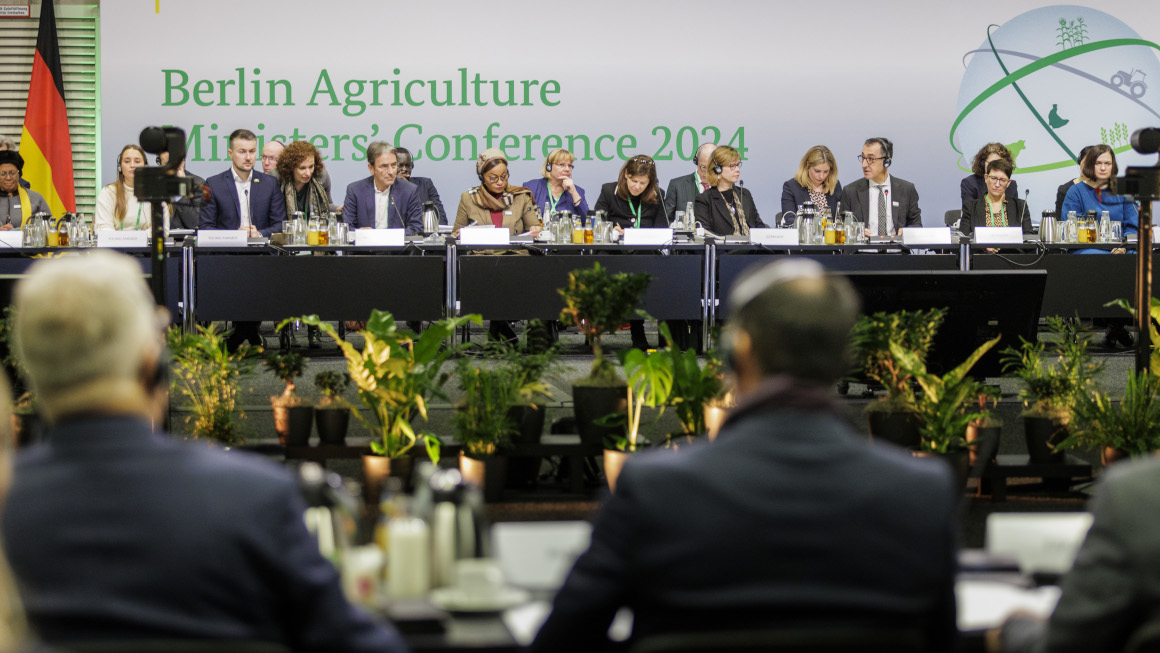The Voluntary Guidelines on Tenure of Land
The "Voluntary Guidelines on the Responsible Governance of Tenure of Land, Fisheries and Forests", unanimously adopted by the United Nations Committee on World Food Security (CFS) are a historical milestone of international development policy.
They are the first instrument under global international law that regulates the secure and fair access to natural resources and also deals with the shaping of investments in land, so-called land-grabbing. The aim is to explicitly strengthen people in developing nations, so that they can secure their livelihood by their own efforts.
Access to resources is of existential importance
Secure rights of access to land and other productive resources are of existential importance to the majority of people in rural areas. They are a key factor in the implementation of the human right to food. An increasing number of foreign investors are buying land in developing and emerging countries. Private investments are important for food security but they must not violate the human rights and land rights of the respective local population.
According to current figures, since the year 2000 more than 83 million hectares of agricultural land have been sold or leased as part of investments in developing countries. In connection with these land transfers there have been alarming reports about forced evictions and expulsions of smallholders who do not have formal land titles.
Rights of ownership and tenure of the local population
The Voluntary Guidelines outline how land transfer processes need to be shaped, giving due respect to the human right to food as well as to the rights of ownership and tenure of the respective local population. For instance, consultations with the local population and impact assessments for the population and for nature need to be implemented. At national level, the states are requested to adopt rules on the extent and scope of large-scale land investments.
In addition to minimum standards on land investment, the document also includes guidelines on the recognition and protection of rights of ownership and tenure, on improving administrative structures, on implementing agricultural reforms and on fighting corruption.
Strengthening women's rights
Particular success has been achieved regarding the strengthening of women’s rights. In many emerging and developing countries, women are still discriminated against due to traditional inheritance and family law and have only very little influence on land-use planning. Despite the fact that women account for more than half of small-scale farmers, fewer than 20 percent of the titles to land are issued to women. At the initiative of Germany, particular consideration was given to the participatory rights of women and girls. According to international estimates, if women had the same access to land, education and technology, it would be possible to reduce the number of people suffering from hunger in the world by more than 100 million.
The Federal Ministry of Food and Agriculture provided more than EUR 2 million in support of the drafting of the Guidelines, thus continuing its activities to support the implementation of the Voluntary Guidelines on the Right to Food. Representatives of civil society, the scientific community and the private sector actively participated in the negotiations alongside representatives of 96 countries. Thanks to the close involvement of all partners in the negotiating process, the Guidelines have a high legitimacy and significance in terms of international law.
The practical implementation of the Voluntary Guidelines
The next step is about practical implementation. Investors and governments in the states concerned, and donor countries and non-governmental organisations will have to let themselves be judged by this commitment in the future. Compliance with the Guidelines must be a precondition for bilateral cooperation with partner countries and must be taken into account by international donor institutions. BMEL supports the implementation of the Voluntary Guidelines with specific projects under the Bilateral Trust Fund with the FAO.









